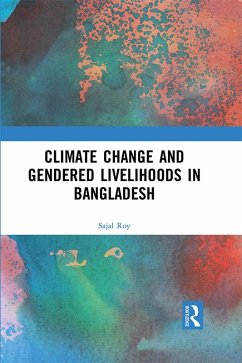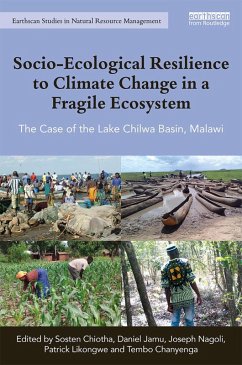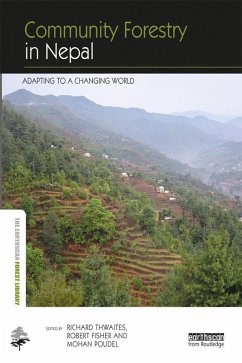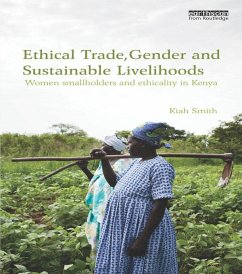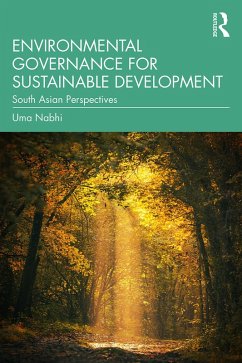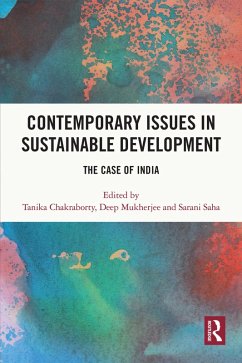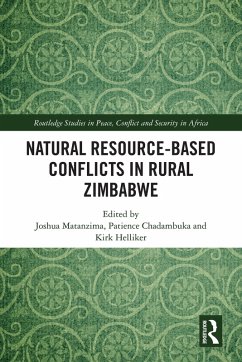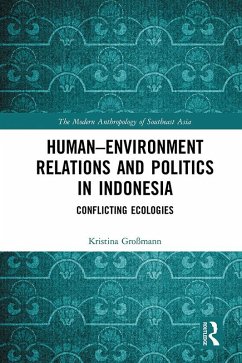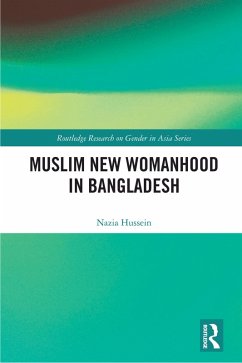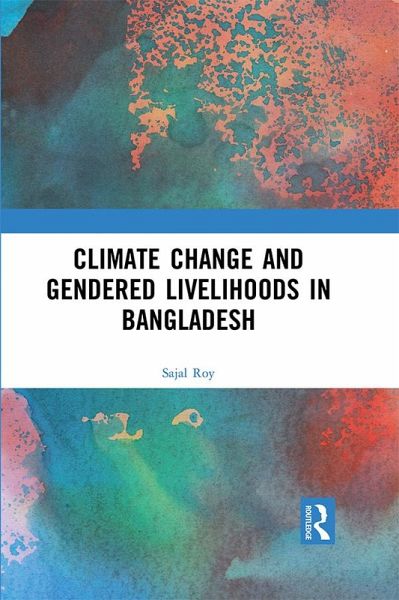
Climate Change and Gendered Livelihoods in Bangladesh (eBook, ePUB)
Versandkostenfrei!
Sofort per Download lieferbar
41,95 €
inkl. MwSt.
Weitere Ausgaben:

PAYBACK Punkte
21 °P sammeln!
Globally climate-induced disasters have been impacting marginalised communities' lives, livelihood and gendered relations. This book explores the effects of Cyclone Aila (as a result of climate change) in 2009 on the rural livelihoods and gendered relations of two ethnically distinct forest communities - Munda, an indigenous group, and Shora, a Muslim group - dwelling near the Sundarbans Forest in Bangladesh.Examining the cyclone's medium- to long-term impacts on livelihoods and comparative aspects of gendered relations between these two contrasting communities, this book addresses a gap in cu...
Globally climate-induced disasters have been impacting marginalised communities' lives, livelihood and gendered relations. This book explores the effects of Cyclone Aila (as a result of climate change) in 2009 on the rural livelihoods and gendered relations of two ethnically distinct forest communities - Munda, an indigenous group, and Shora, a Muslim group - dwelling near the Sundarbans Forest in Bangladesh.
Examining the cyclone's medium- to long-term impacts on livelihoods and comparative aspects of gendered relations between these two contrasting communities, this book addresses a gap in current critical development studies. It adopts an ethnographic research design and analyses the alterations to livelihood activities and reconfiguration of gender relations within the Munda and Shora communities since 2009. The study primarily contends that post-Aila, livelihoods and gendered relations have been substantially transformed in both communities, making the case that the improvement of local infrastructure, as an important part of the geographical location, has noticeably progressed the living conditions and livelihoods of some members of the Munda and Shora communities.
Connecting climate-induced changes with the construction and alteration of gendered livelihood patterns, the book will be of interest to a wide range of academics in the fields of Asian Studies, Sociology of Environment, Social Anthropology, Human Geography, Gender and Cultural Studies, Human Geography, Disaster Management and Forestry and Environmental Science.
Examining the cyclone's medium- to long-term impacts on livelihoods and comparative aspects of gendered relations between these two contrasting communities, this book addresses a gap in current critical development studies. It adopts an ethnographic research design and analyses the alterations to livelihood activities and reconfiguration of gender relations within the Munda and Shora communities since 2009. The study primarily contends that post-Aila, livelihoods and gendered relations have been substantially transformed in both communities, making the case that the improvement of local infrastructure, as an important part of the geographical location, has noticeably progressed the living conditions and livelihoods of some members of the Munda and Shora communities.
Connecting climate-induced changes with the construction and alteration of gendered livelihood patterns, the book will be of interest to a wide range of academics in the fields of Asian Studies, Sociology of Environment, Social Anthropology, Human Geography, Gender and Cultural Studies, Human Geography, Disaster Management and Forestry and Environmental Science.
Dieser Download kann aus rechtlichen Gründen nur mit Rechnungsadresse in A, B, BG, CY, CZ, D, DK, EW, E, FIN, F, GR, HR, H, IRL, I, LT, L, LR, M, NL, PL, P, R, S, SLO, SK ausgeliefert werden.




